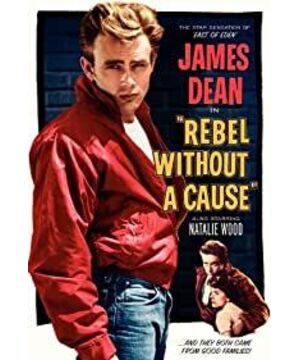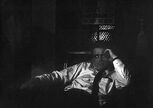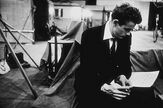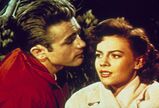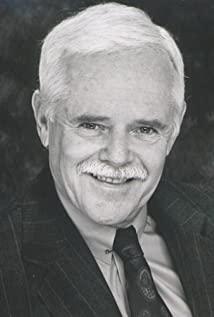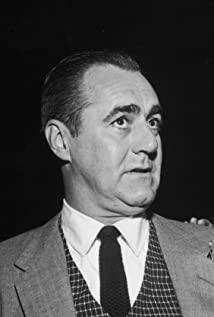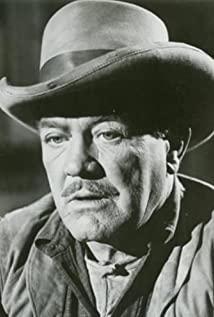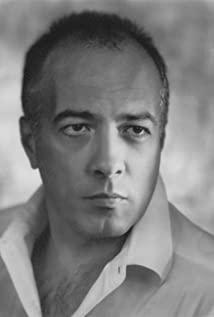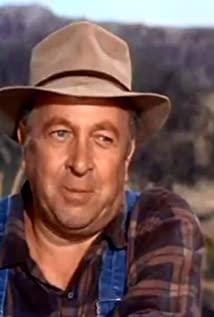Starting from the impromptu performance of the drunk street coaxing the monkey to sleep, we are either attracted to immerse ourselves, or pushed and dragged into the adolescence where naive and rebellious coexist. Perplexity is the loss after the rebellion fades, and helplessness is the echo after resisting the degaussing.
Fighting weapons, desperate games, running away from home, gunfights, etc. are packed within 24 hours, and the adolescence of countless "Beat Generations" are intertwined and collided. The behavior is fierce but seemingly meaningless. In the end, just like Buzz, who was asked why he had to race on the cliff, answered, "I don't know why this is done. But we have to do something."
In fact, otherwise, rebellion without a cause is confusion with a cause. With ineffective communication, family education plays a backlash. For example, the breakfast scene where the three generations of Jim's family face off has adopted an unnatural high point of view to reinforce the disharmony within the family, as well as the weakness of the father and the strength of the mother. In the 180-degree tilt and rotation lens, we watched mother go downstairs through Jim's perspective, and more intuitively felt his chaotic and restless mood at that time. In Judy's house, the rigid relationship between father and daughter caused Judy to deviate from the norm and play a life. Plato was always alone because he was abandoned by his parents, so he would seek the feeling of father's love in Jim and his mother's last name in Judy. From this point of view, the justice of the three masters was rejected and suppressed by the family to varying degrees. Only then would they escape to the uninhabited building and burst into family-like friendship.
Throughout the film, "coat" is the carrier of "trust". At the beginning of the film, the composition of cinemascope technology squeezed the three protagonists into the same scene in the police station. At this time, they did not know each other, let alone trust, so trembling Plato rejected the jacket that Jim handed over. In the middle section, in an unmanned building, Plato regarded Judy and Jim as parents, embracing a sense of trust, he put on his coat and quickly fell asleep. In the planetarium at the end of the film, Plato puts on the jacket that Jim handed over again, suggesting that he trusts Jim again. After Plato was killed, Jim and Judy hugged each other in pain. At this time, Jim's father put a coat on him and embraced them, indicating a return of family trust and the reconciliation of family conflicts.
"Human beings exist alone. As far as the universe is concerned, it is just a small episode." The setting of the Griffith Planetarium magnifies the incomprehensible loneliness of adolescence to the loneliness of all mankind when facing the universe. Plato was shot to death on the steps of a rehearsal of a tragedy in the Greek Temple of the Planetarium. Isn't it the sacrifice of youth in front of the Temple of the Universe?
Finally: Hey, Dear Dean. It has rained a few times recently, and it has been cool. It seems that the season for wearing a red short jacket is again. ?️
View more about Rebel Without a Cause reviews


